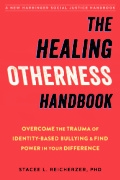Loyalty is one of the most prized qualities in all types of relationships. Marriage, employment, friendships…we expect loyalty to be a two-way commitment that lasts as long as a bond is possible. Unlike dogs though, humans are capable of breaking unhealthy ties, particularly when we realize we’re feeling depleted or even abused in some way. In this 3-part series, I’ll talk about loyalty in different types of relationships: career, friendship, and marriages, to explore when loyalty works against us. Today, I’ll share ideas to help you answer the question: have you been too loyal to an employer?
It used to be that people sought work until they found a company with good pay and good benefits. This was the case for AT&T employees, for example. I counted myself among their numbers for 12 years. For decades, people had gone to work for the monolithic phone company and other staples of the American economic engine with a set of expectations. In exchange for their loyalty in showing up on the job each day and performing it according to the demands that were laid out, they’d earn a living wage to support themselves and their families. Upon retirement, they’d be rewarded with a pension and other benefits in return for their years of service.
Many people who bought that promise have found themselves not only without a jobs and benefits, but with a narrow skill set with limited transferability to other types of work. Some are doing similar types of jobs to ones they did 20 or more years ago for less money and with trimmed retirement benefits.
What happened exactly? Well, and this is an important thing to recognize about life in general, many of the notions that working class and middle class kids were raised with were correct at one time. Staying at the same job did pay off for many people in prosperous industries during the decades following World War II. Job loyalty made sense.
Times changed, and the rules our parents and grandparents lived and worked by do not apply as universally as they once did. This is the part where we can all take a cue from millennials approach to job growth. Probably no one under 30 expects to retire from a job they’re starting now. As much flack as millennials get for what naysayers call their quest for ‘instant gratification,’ they have an understanding that a good job today is an opportunity to build a skill set for tomorrow.
In other words, climb the ladder, but don’t expect the ladder to be there forever.
Millennial wisdom is on to something, here. Even when jobs don’t leave us, sometimes we need to leave a job. Assignments and companies change. So do we. What may have been a great job for us two years ago might not work for us now. In fact, maybe the job stayed pretty much the same, and that’s why we need to leave it now. We did the job, learned it, grew from it. Now we want to do something different. If we have the financial freedom to make a move, this is life’s invitation for us to do so.
There’s nothing noble about staying with a job that’s no longer interesting. A career, after all, is a huge part of our life. Why would we allow ourselves to do the same thing, day after day, if it doesn’t at least keep us engaged? Career satisfaction impacts multiple areas of our lives, and if we allow ourselves to remain in a dissatisfying job situation, it will have an impact on our mental health. What’s more, the longer we say in a job we dislike, the harder it is to make a necessary move.
Meanwhile, moving into a new job that again challenges us brings us back into the zest and vitality that we had when we went into our last. As a result, we do better work. The company’s happy, we’re happy. For people who have the financial flexibility to do so, there’s no reason to remain in a job that doesn’t satisfy the soul. If you don’t have an exit plan, build one.
Your parents and grandparents, even your peers, may think you’re crazy and try to talk you out of “doing anything rash” or any of the other dire warnings against living fully. This is their own fear and anxiety talking though, much of it formed in a different world where loyalty to a single employer paid off.
It’s not that world anymore.

